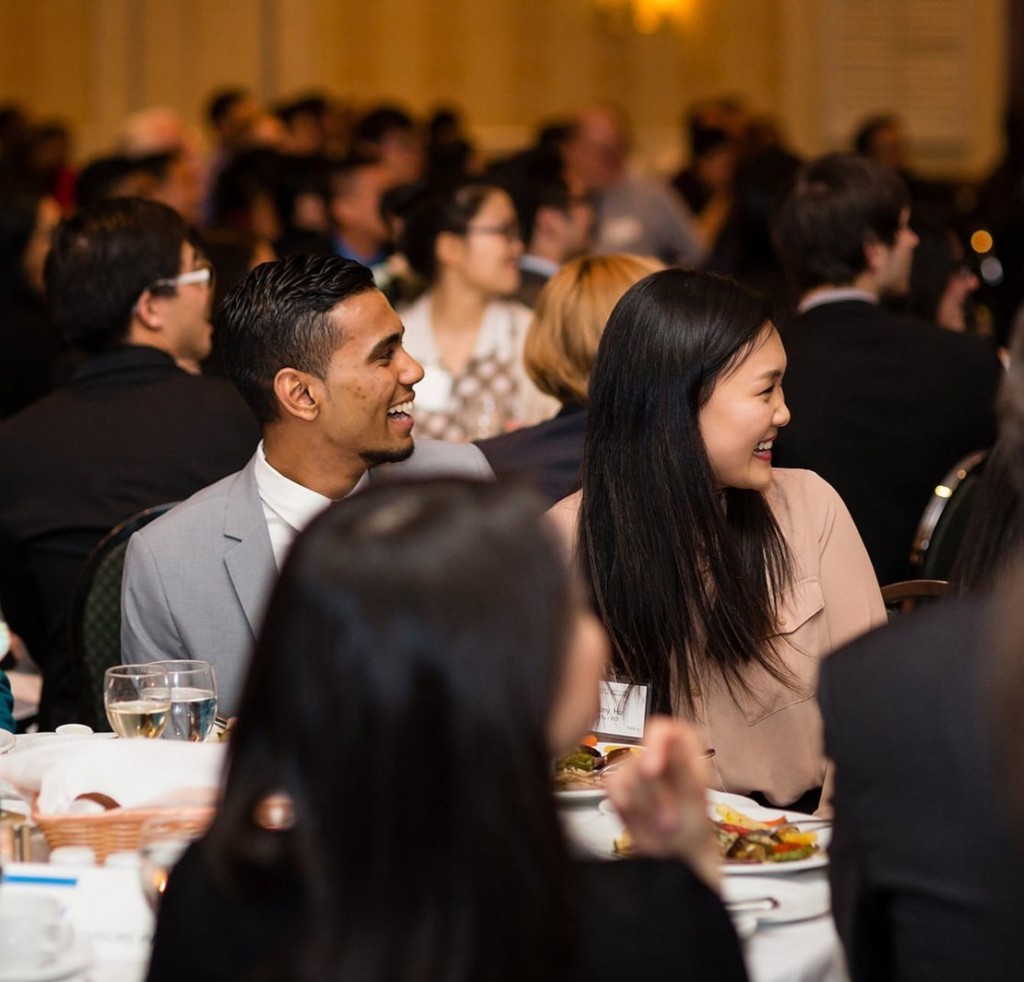The Role of Food Engineering in International Development
Featuring Professor Levente Diosady (Chem 6T6, MASc 6T8, PhD 7T1)
Today’s engineers are assuming an increasingly prominent role in addressing global challenges. Food engineering is changing the landscape of international development as we seek to tackle the complexities of global project management while integrating social, environmental, political and economic factors. From disease prevention to work capacity, child development to maternal care and more – food security and nutrition have a profound impact on the wellbeing of individuals and their larger societies. Learn how innovative solutions in food engineering are helping to meet the demands of a growing and complex world.
About Professor Levente Diosady
Professor Diosady joined the Chemical Engineering Department at the University of Toronto in 1979, where he established the first food engineering program in Canada. His research interests include oilseed processing, membrane processes, extrusion, advanced separation processes and micronutrient fortification of food. He is the author of over 120 publications in refereed journals and holds 17 patents. He is a fellow of several Canadian and international engineering and chemistry institutes, and the recipient of numerous prestigious awards including the Canada Award for Business Excellence, the Professional Engineers of Ontario Engineering Medal, the Queen’s Diamond Jubilee Medal and the Order of Ontario – the province’s highest civilian honour.
Role of molecular structure in heterogeneous chemistry: Insights from two structural isomers of dimethylsuccinic acid
Anna Cheng, MPhil Student, Graduate Division of Earth & Atmospheric Science, The Chinese University of Hong Kong
A key challenge in understanding the transformation chemistry of organic aerosols is to quantify how changes in molecular structure alter heterogeneous reaction mechanisms. In this talk, we will discuss how the relative locations of branched methyl groups affect the heterogeneous OH oxidation of two structural isomers of dimethylsuccinic acid (DMSA) (2,3-DMSA and 2,2-DMSA). The heterogeneous oxidation experiments are carried out using an aerosol flow tube reactor. The composition of the aerosols before and after oxidation is characterized in real time using a soft atmospheric pressure ionization source (Direct Analysis in Real Time, DART). Kinetic measurements show that the heterogeneous reaction of OH with 2,3-DMSA (reactive OH uptake coefficient, γ = 0.99 ± 0.16) is ~2 times faster than that of 2,2-DMSA (γ = 0.41 ± 0.07), which can be attributed to the larger stability of the tertiary alkyl radical produced by the initial OH abstraction reaction. Aerosol speciation data reveal that for both isomers, there is a much larger abundance of C6 alcohol relative to C6 ketone functionalization products. This observation cannot be explained by the condensed-phase reactions such as Russell and Bennett-Summer reactions. We propose that the presence of the two branched methyl groups favors alkoxy formation from peroxy radical self-reactions and the functionalization products are likely formed via the intermolecular hydrogen abstraction of the alkoxy radicals. We will discuss the importance of the alkoxy chemistry in the formation of reaction products during the heterogeneous oxidation of these two structural isomers.
2015-2016 Lectures at the Leading Edge
Aggregation-Induced Emission: Together We Shine!
Ben-Zhong Tang, Hong Kong University of Science and Technology
2015-2016 Lectures at the Leading Edge
Research in an Industrial Catalysis World: A Lifelong Adventure
Stuart Soled, ExxonMobil Research and Engineering Co.
2015-2016 Lectures at the Leading Edge
2015 AEESP Distinguished Lecturer
The Interplay between Chemicals and Microbiomes; An Environmental Biotechnology Perspective
Nancy Love, University of Michigan
2015-2016 Lectures at the Leading Edge
Making the Environment Part of the Next Generation of Urban Water Infrastructure
David Sedlak, University of California, Berkeley
2016-2016 Lectures at the Leading Edge
Thermodynamics in Cyrobiology: How Math Can Save Knees
Janet Elliott, University of Alberta
 If you haven’t already registered for the 31st Annual Chemical Engineering Dinner, there’s still time to do so! This annual event is an occasion to mix and mingle with students, faculty, staff, alumni and industry friends.
If you haven’t already registered for the 31st Annual Chemical Engineering Dinner, there’s still time to do so! This annual event is an occasion to mix and mingle with students, faculty, staff, alumni and industry friends.
This year’s dinner will be held on Friday, April 1, in the Colony Grande Ballroom at 89 Chestnut Street Residence. The evening begins with a reception at 6:00 p.m. followed by dinner at 7:00 p.m.
To register, visit my.alumni.utoronto.ca/2016chemeng by noon on Friday, March 18.
Important Note: Faculty, staff and post docs may register for up to two tickets. Students may register for one ticket each.
The Ontario Centre for the Characterisation of Advanced Materials (OCCAM) is hosting its Grand Opening on Thursday, May 12 from 8:30am to 6:00pm. The day includes workshops, demonstrations and keynote remarks from:
- Peter Arrowsmith, Owner, BOTE Engineering
- Nigel Browning, Materials Sciences Laboratory Fellow, Pacific Northwest National Laboratory
- Bill Theilacker, Senior Scientist, SSO Core Technologies, Medtronic
- John F. Watts, Director of Research, Department of Mechanical Engineering Sciences, University of Surrey
The full schedule and registration will be available soon. Stay tuned for more info!
Many chronic diseases are now believed to be due to a combination of an individual’s genome and their cumulative environmental exposure. Exposome, analogous to genome, is a bold
conceptual leap, seeking to bridge the roles of the environment and genome in human disease. The University of Toronto just signed a tripartite agreement with Utrecht University and the
Chinese University of Hong Kong; a focus will be collaboration on exposomics research. This event will serve as UofT’s launch for this initiative. The talks will introduce the exposome,
identify related research needs and challenges, and provide ongoing and proposed initiatives in Canada and abroad.
Moderator: Paul Demers, Cancer Care Ontario and DLSPH
Seminar speaker: Dr. Roel Vermeulen, Utrecht University
Panel members:
- Dr. Howard Hu, Dean, DLSPH
- Dr. Jeff Brook, Environment and Climate Change Canada and DLSPH
- Dr. Greg Evans, Chemical Engineering and Applied Chemistry and DLSPH